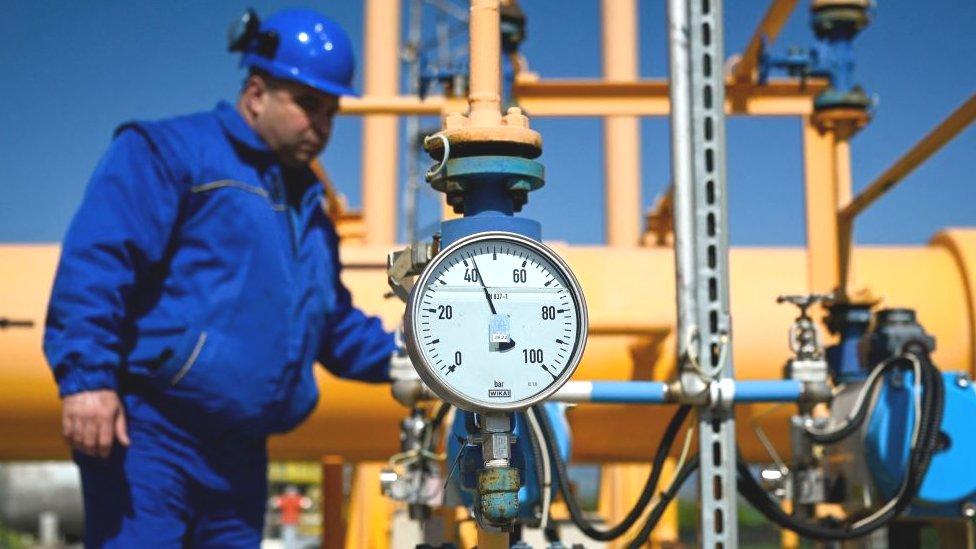Gas taps can still be turned on to EU, says Vladimir Putin
- Published
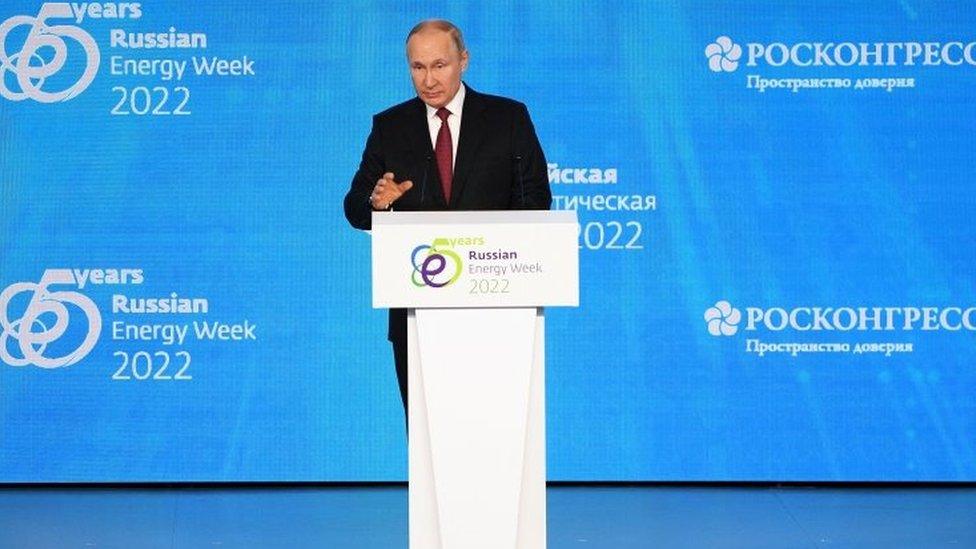
Vladimir Putin said Europe was to blame for its current energy crisis
President Vladimir Putin has said the gas taps can be still turned on for Russian supplies to the EU, despite sharp political disagreements.
Russia has not delivered gas to Europe via the Nord Stream 1 line since August, and Nord Stream 2 was halted after Russia invaded Ukraine.
The February invasion led to gas price hikes, and EU customers face record tariffs this winter.
But Germany quickly rejected Mr Putin's offer to send gas via Nord Stream 2.
At the same time, a government spokesman in Berlin said Nord Stream 1 - which is not under sanctions - was an option, but gas was not flowing "because Russia did not deliver".
Russia has been accused of using gas supplies as a weapon against the West since the invasion of Ukraine - a charge repeatedly denied by the Kremlin.
"The ball, as they say, is now in the European Union's court - let them just open the tap," Mr Putin said on Wednesday at the annual Russian Energy Week in Moscow.
"We do not limit anyone in anything," he said, adding that Moscow was ready to supply additional volumes of gas in the autumn-winter period.
But despite Mr Putin's words, a resumption of gas supplies to Europe seems unlikely.
Nord Stream 2 was halted because of the invasion, and Nord Stream 1 has suffered severe disruption in recent months:
In June, Russia cut Nord Stream 1 supplies by 75%
In July, the line was shut for 10 days, with Russia citing maintenance, before reopening at lower capacity
In August, the line was shut entirely, with Russia again blaming equipment problems
In September, leaks in Nord Stream 1 and 2 were reported - with the EU blaming sabotage
At the Moscow forum, Mr Putin described the leaks an "act of international terrorism". But he said Russia was ready to resume supplies via the one intact part of Nord Stream 2.
And the Kremlin leader also proposed creating an alternative European gas hub via Turkey. Ankara is yet to publicly comment on the issue.
Many European countries - and Germany in particular - had become increasingly reliant on Russian gas.
Over the past year, Russia cut its gas supplies to EU states by 88%, according to David Fyfe, chief economist with research firm Argus Media.
Wholesale prices of gas in Europe have more than doubled over the same period, he said.
The EU has already adopted a raft of measures to mitigate the crisis, including a pan-EU deal to cut gas usage by 15%.
The German government hopes to reduce gas usage by 2% by limiting the use of lighting and heating in public buildings this winter.
Spain has already brought in similar measures and Switzerland - not an EU member - is considering doing the same.
Before Russia invaded Ukraine, Germany relied on Russia for 55% of its gas. It has reduced this to 35% and wants eventually to reduce imports to zero.
Germany is also increasing its use of coal and extending the life of power stations which were due to shut - despite the negative environmental impact.
Gas prices have also shot up in the UK, even though it imported very little gas from Russia, because the shortages affected the international gas price.
The government in London has moved to limit energy bill rises for all households, with a typical bill being capped at £2,500 annually until 2024.
On Wednesday, EU energy ministers are discussing in Prague urgent measures to tackle the energy crisis in the 27-member bloc.
A gas price cap has been suggested - but some countries are reported to be opposed to the move.
In a separate development on Wednesday, Poland reported a leak in the Druzhba - meaning Friendship - pipeline that supplies oil from Russia to Europe via Poland.
The leak on the Polish part of the pipeline is being investigated.
Senior Polish energy sector official Mateusz Berger said it was most likely "accidental damage", Reuters reports. At this stage "no grounds at all" to believe that it was sabotage, the official added.
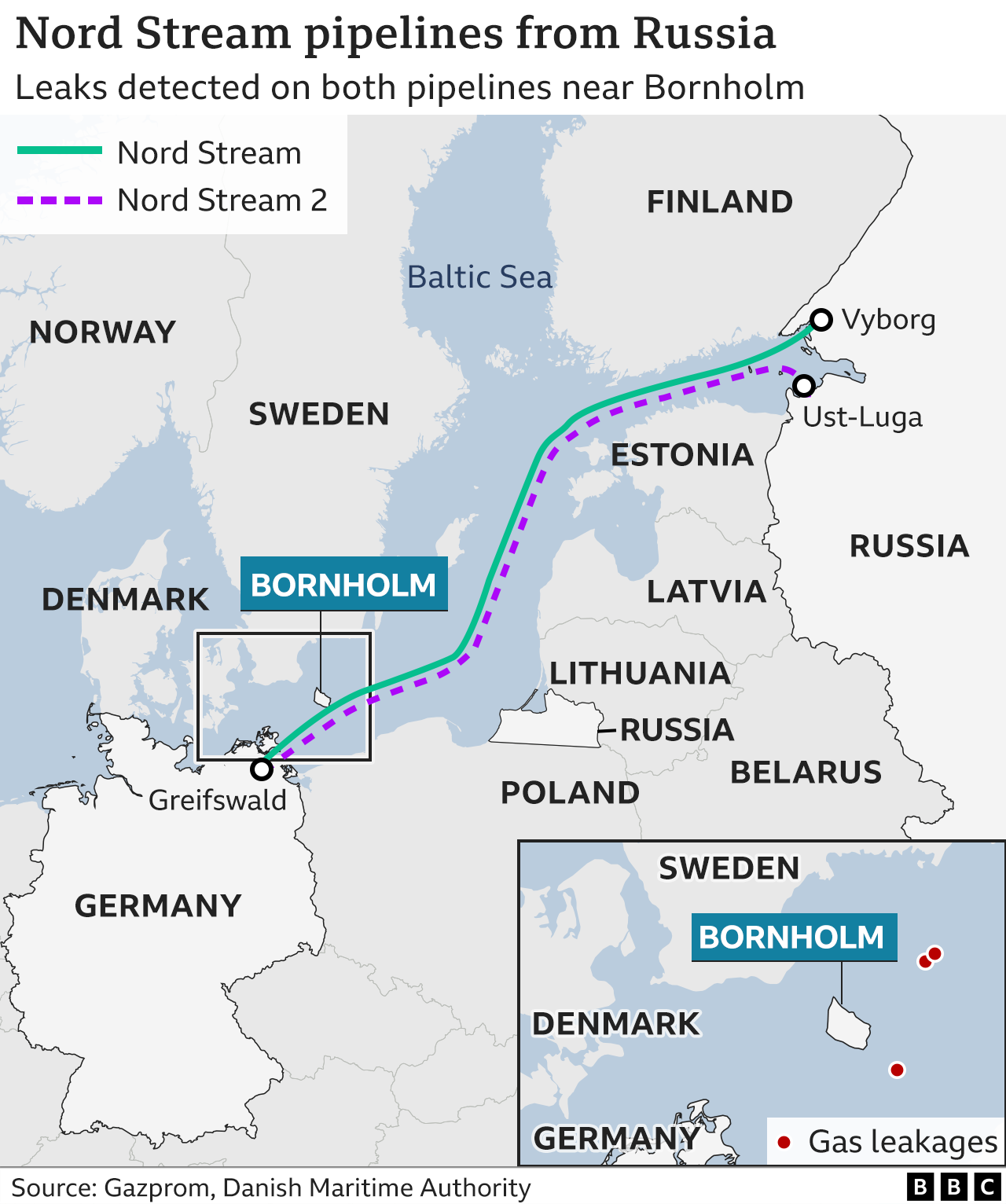
Related topics
- Published28 September 2022
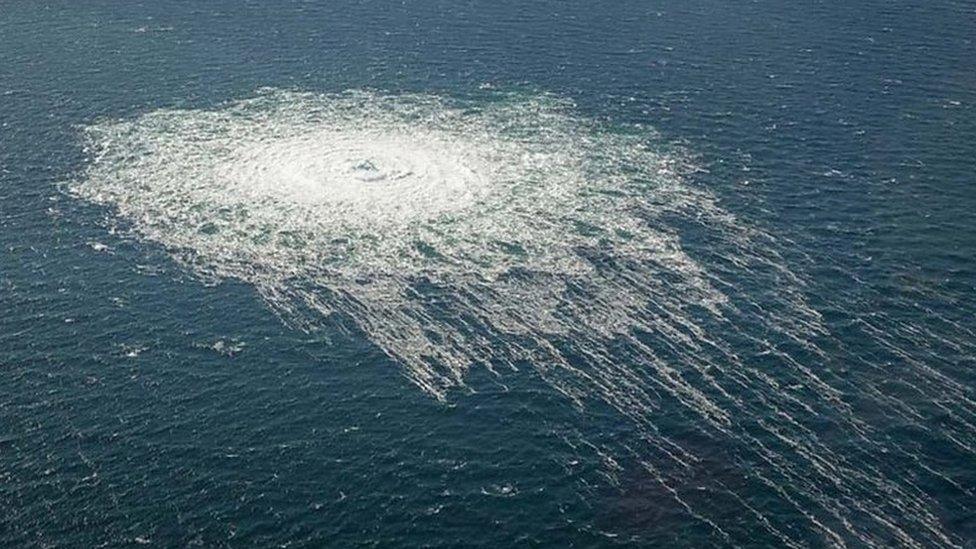
- Published27 September 2022
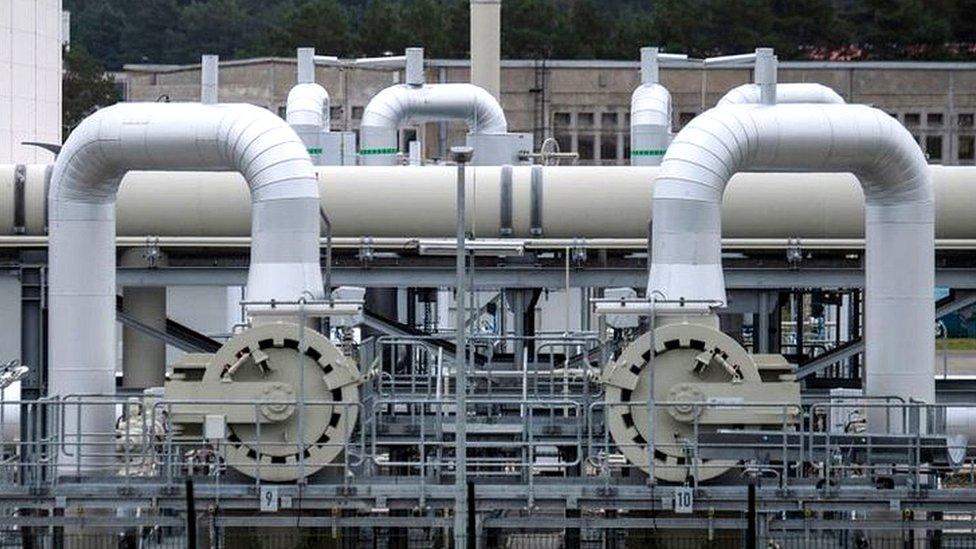
- Published29 September 2022
